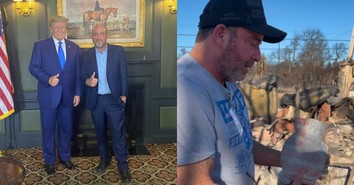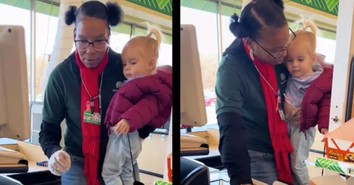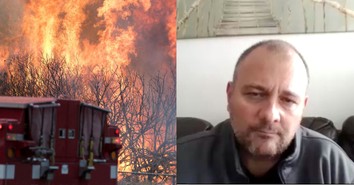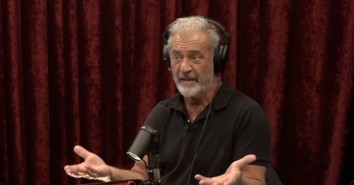Christian Rapper Lecrae Talks about How Trauma Changed his Life
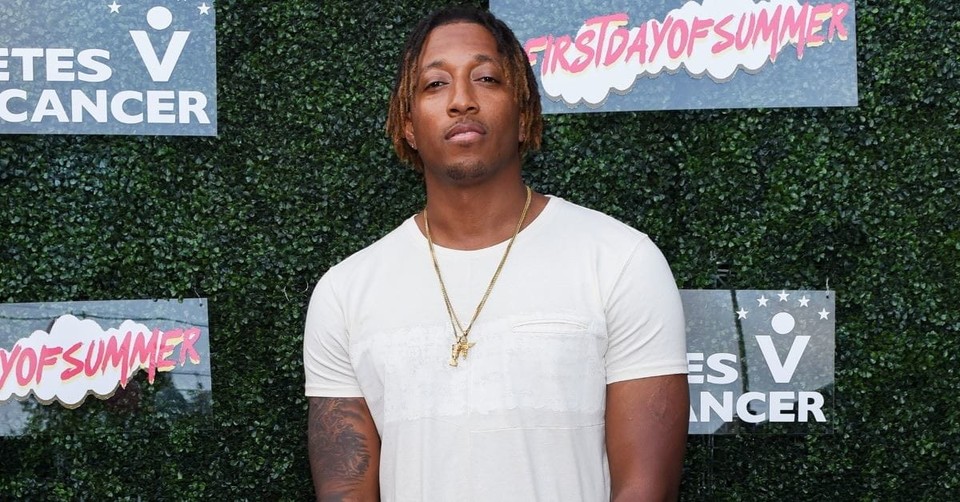
Christian rapper Lecrae visited Yale University recently to talk about mental health and social justice.
The rapper opened the conversation by telling the audience about his experience being sexually assaulted by a close family member when he was seven-years-old. He told the crowd that this assault was never dealt with and to cope with the trauma he taught himself to put it in a box and push it down.
He goes on to say that he spent his young adulthood trying to escape the reputation of his father who walked out of his life when he was four years old. The rapper said, “I remember as a kid people saying, ‘you remind me of your father,’ ‘you act like your father.” He continued, “I didn’t take this as a compliment. Even if it was just a mere observation, I took it as an insult, cause this was a man who wasn’t consistent, cause this was a man that had taken on drug abuse... I saw that as an example of who I should not be, and so what I did at that point in time was consume myself with not being my father.”
Lacrae goes on to say he focused so heavily on trying not to be his father, he never really stopped to think about who he was supposed to be.
This compiled with the destructive environment he grew up in and the several trauma’s he experienced throughout his life caused him to go into a downward spiral.
He said while may have appeared to be thriving externally, internally he was heading to disaster.
“In front of the world, I was this level-headed, God-fearing man. I’m navigating everything just the way that I should, but behind the scenes, I’m a ticking time bomb,” the singer said.
Lacrae was suffering because of the trauma he had experienced but never addressed. The singer told the audience he learned after seeing a video of a teenager flaunting a gun around that he was suffering from PTSD from a murder he witnessed as a young boy of a 13-year-old friend. Then over the next few years, as he heard about a series of young African American’s being killed by gun violence due to racial profiling, something was set off in him.
The rapper wanted to speak out about the climate in America but was unsure of how to do it. Soon he chose to use Twitter as a platform. After tweeting his thoughts on the death of Trayvon Martin and the deaths of other young African Americans and participating in a protest in Atlanta, Lacrae lost hundreds of thousands of followers on social media. He said, “I’m saying things outside of the boundaries of what people expected of me… and the result was this unadulterated rejection.”
The rapper said that this taught him a lesson that has stayed with him to this day, “if you live for people’s acceptance, you will die from their rejection.”
But still, he struggled, because his world was crashing around him. He said, “I stood for something, but it felt like I had lost everything.”
Soon the hate mounted to death threats and racial slurs being thrown at him and his family which caused him to spiral into a deep depression.
The singer said, “I didn’t know what was real. I lost faith in people. I lost faith in God. I lost faith in faith.”
He began to feel the pressure of his platform, realizing that people were expecting the best from him when he was angry and at his worst, and to fix it he said, “I had to open that closet.”
He continued, “All of that suffering, I had to stare it in the face. All of that failure, I had to stare it in the face. I had to look at it and allow it to make me a new me.”
The singer said from this experience he learned that he needed to walk through judgment to become who he was created to be, not who society wanted him to be.
He exclaimed that God needed him to “look in the closet” and address his past traumas in order for God to make him into a better version of himself.
In his powerful message Lacrae said, “My plane landed acknowledging that I’m broken, acknowledging I’m not perfect, acknowledging that I don’t get it all right, acknowledging I have a lot of wounds that are now healed and have become scars, and I can stand here today and show you my scars because those wounds have healed. But you’ve got to admit it.”
He continued, “That has resorted my faith in faith. That has restored my faith in God because God is the healer of all things, my wounds are healed because of him.”
Video courtesy: Yale Universty
Photo courtesy: Getty Images/Presley Ann/Stringer
Originally published September 28, 2018.
